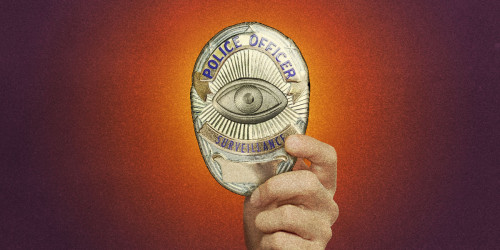
EFF recently received records from the Miami-Dade Police Department in response to a Public Records request for information on its drone program. These records provide additional insight into domestic drone use in the United States, and they reinforce the importance of public access to information on who is authorized to fly drones inside US borders.
The records the Miami-Dade PD released include the Federal Aviation Administration-issued Certificate of Authorization (COA) to fly the MDPD drones. This appears to be the first time a law enforcement agency has made its COA available to the public without redactions.
The COA and the other records EFF received show that Miami-Dade’s drone program is quite limited in scope. The two small drones the MDPD is flying—Honeywell T-Hawks—are able to fly up to 10,000 feet high, can record video or still images in daylight or infrared, and can “Hover and stare; [and] follow and zoom,” (pdf) according to the manufacturer. However, the COA limits their use to flights below 300 feet. The drones also must remain within visual line of sight of both a pilot and an observer and can only be flown during the day. They cannot be flown within the Miami city limits or over any high-rise buildings, populated beaches, outdoor assemblies of people, or heavily trafficked roadways (which seems to severely limit their range). Also, the MDPD has stated it doesn’t use the drones to record incidents or store image files and that the drone is set up to “clear[] the picture upon the next picture being captured.” (It is not clear from MDPD’s records whether the department has another system set up to retain the image files.)
MDPD sent EFF a copy of its “Standard Operating Procedures” for flying the T-Hawks, though these procedures are still in draft form. However, neither they nor the COA discuss any legal restrictions on flights or information collected to protect privacy or civil liberties. MDPD said in a separate email that the department does not require a warrant or any other form of court process prior to flying the drones.
Although EFF would like to see the MDPD incorporating court oversight into its use of drones, we commend the department for following the example of the Texas Department of Public Safety and being forthcoming about its drone program. We hope the FAA will use these agencies as a model as it prepares its response to EFF’s lawsuit and Freedom of Information Act request for copies of all COAs the agency has issued to fly drones domestically.
Miami-Dade PD Records:
- Email from MDPD with Responses to EFF's Questions









